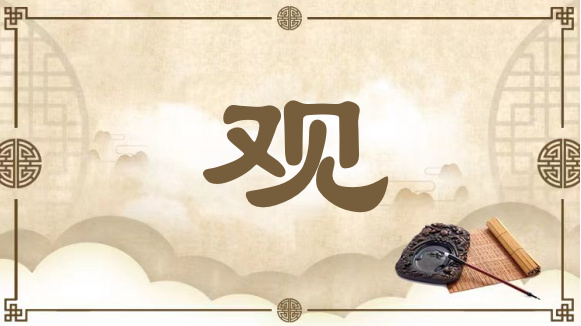Observation

观察。“观”是人们认识事物的一种方式。一般而言,“观”指观察者置身于事物之外,通过冷静观察来了解事物存在、运行的样态。“观”不同于一般意义上的“看”,“观”是对事物更全面、更持久的观察。通过这样的观察,人们得以更深入地探究事物存在的依据及其运行所遵循的规则。
Guan (观), namely observation, is a way for individuals to understand things. Generally speaking, it refers to the observer being outside of the thing being observed and using calm observation to examine and understand the existence and operation of that thing. Guan is different from the general meaning of kan (看 looking). It implies a more comprehensive and long-term observation of things. Through this kind of observation, people can delve more deeply into the basis of things and the rules they follow.
引例 Citation:
◎子曰:“始吾于人也,听其言而信其行;今吾于人也,听其言而观其行。”(《论语·公冶长》)
孔子说:“一开始我对待别人,听到他说的话就相信他的行为;现在我对待别人,听了他的话还要观察他的行为。”
Confucius said: "At first, I listened to people's words and believed their actions. Now, I listen to their words and observe their actions." (The Analects)
推荐:教育部 国家语委
供稿:北京外国语大学 外语教学与研究出版社
责任编辑:钱耐安





